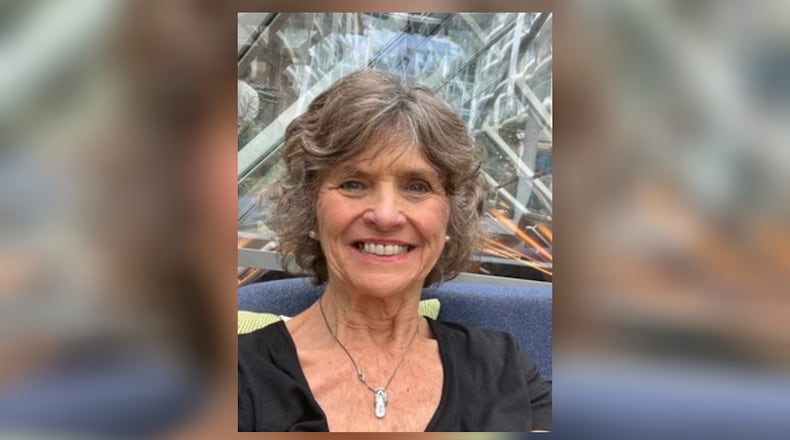As the heinous Tuesday ended and the next days began, unrest and panic moved into patient civilian preparation. The full roster of employees clogged the roadways and awaited lengthy approval checks by armed soldiers as base gates began opening. Whatever was said behind those eight-foot chain-link walls, no one was at liberty to discuss and few asked. There was a determined quiet around the city, respecting the vital role the base plays during national crises. Dayton’s traffic patterns became less congested, as civilians and military personnel adjusted to the new schedules.
But there continued to be “thunder” in the Greater Dayton skies, the sights and sounds of massive carriers and specialized jets coming and going, populating our senses, and filling us with pride and anxiety.
At no time was that more dramatic that during my weekly early morning guided nature walk at the Aullwood/National Audubon Center. At times, the naturalist had to delay his presentation as our binoculars moved from a wolf spider to patriotic-banded aircraft moving overhead. Only the week before we had observed feathered friends coalesce in their migratory pursuits of warmer air. That particular week there were fewer to view, all of them frightened, no doubt, by the shocking interruption to the quiet reserve. Perhaps they had pondered whether to explore other migratory paths that would be less traveled.
Juxtaposed with my walk in the wild, the experience was a reminder of how responsible we, as human beings, are for not only our own lives but the lives of all living things. Such a tiny part of this earth’s vast beauty, and yet, we, and our elected leaders, ironically, hold the future of this vital planet in their hands.
Lenore Christopher is a retired journalist and columnist, whose last position was as Dayton editor of The Catholic Telegraph.
About the Author
